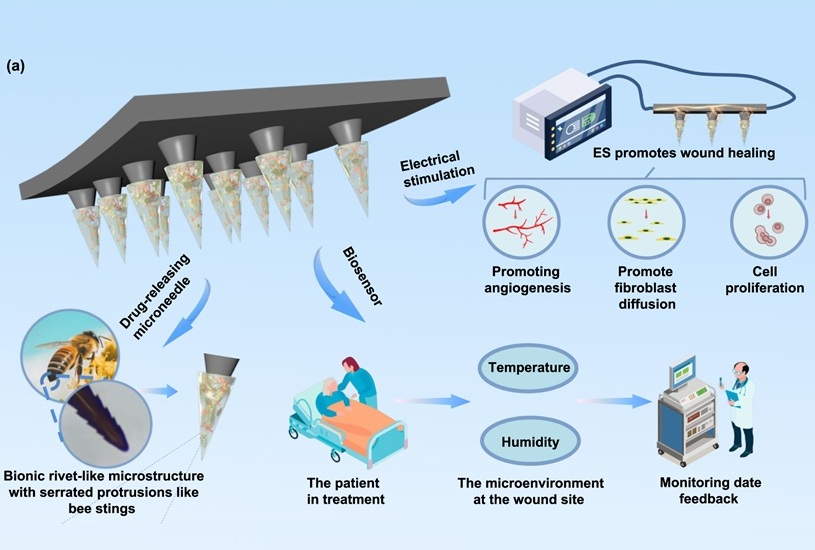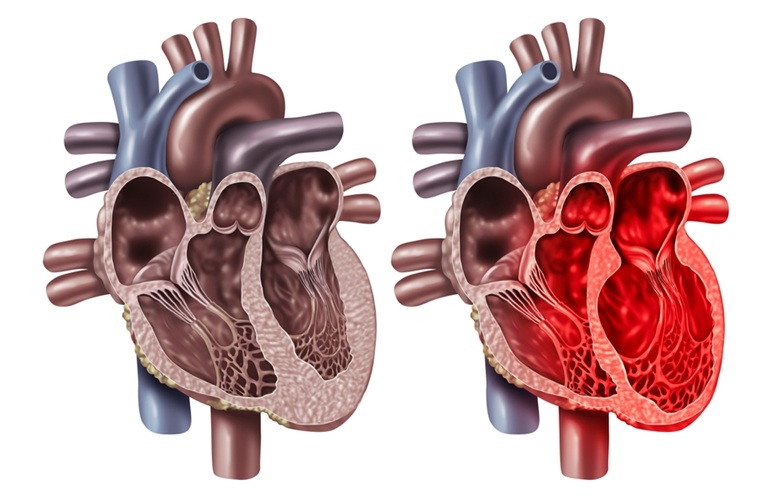Expo
view channel
view channel
view channel
view channel
Medical Imaging
AICritical Care
Patient CareHealth ITPoint of CareBusiness
Events
Webinars

- Bee-Stinger-Inspired Microneedle Delivers Drugs, Stimulates Healing and Monitors Wounds
- Blood Markers and ECG Patterns Could Provide Early Warning for Hidden Heart Risks in ICUs
- Multidimensional Diagnostic Approach Identifies Previously Missed At-Risk COPD Patients
- AI Tool Predicts Markers of Alzheimer’s Disease
- New Flexible Material Paves Way for Self-Powered Wearable Sensors
- First Human Spinal Cord Repair Using Patient Own Cells Could Cure Paralysis
- New 'Dual-Mode' Tracer Enables Surgeons to See and Hear Prostate Cancer
- Pioneering One-Stage Hybrid Surgery Ensures Safer Outcomes in Brain and Spine Tumors
- Reimplanting Lab-Grown Patient Cartilage Accelerates Healing After Hip Surgery
- Diamond-Based Sensor Pinpoints Metastasized Cancer for Surgical Removal
- VR Training Tool Combats Contamination of Portable Medical Equipment
- Portable Biosensor Platform to Reduce Hospital-Acquired Infections
- First-Of-Its-Kind Portable Germicidal Light Technology Disinfects High-Touch Clinical Surfaces in Seconds
- Surgical Capacity Optimization Solution Helps Hospitals Boost OR Utilization
- Game-Changing Innovation in Surgical Instrument Sterilization Significantly Improves OR Throughput
- Medtronic Partners with Corsano to Expand Acute Care & Monitoring Portfolio in Europe
- Expanded Collaboration to Transform OR Technology Through AI and Automation
- Becton Dickinson to Spin Out Biosciences and Diagnostic Solutions Business
- Boston Scientific Acquires Medical Device Company SoniVie
- 2026 World Hospital Congress to be Held in Seoul

 Expo
Expo
- Bee-Stinger-Inspired Microneedle Delivers Drugs, Stimulates Healing and Monitors Wounds
- Blood Markers and ECG Patterns Could Provide Early Warning for Hidden Heart Risks in ICUs
- Multidimensional Diagnostic Approach Identifies Previously Missed At-Risk COPD Patients
- AI Tool Predicts Markers of Alzheimer’s Disease
- New Flexible Material Paves Way for Self-Powered Wearable Sensors
- First Human Spinal Cord Repair Using Patient Own Cells Could Cure Paralysis
- New 'Dual-Mode' Tracer Enables Surgeons to See and Hear Prostate Cancer
- Pioneering One-Stage Hybrid Surgery Ensures Safer Outcomes in Brain and Spine Tumors
- Reimplanting Lab-Grown Patient Cartilage Accelerates Healing After Hip Surgery
- Diamond-Based Sensor Pinpoints Metastasized Cancer for Surgical Removal
- VR Training Tool Combats Contamination of Portable Medical Equipment
- Portable Biosensor Platform to Reduce Hospital-Acquired Infections
- First-Of-Its-Kind Portable Germicidal Light Technology Disinfects High-Touch Clinical Surfaces in Seconds
- Surgical Capacity Optimization Solution Helps Hospitals Boost OR Utilization
- Game-Changing Innovation in Surgical Instrument Sterilization Significantly Improves OR Throughput
- Medtronic Partners with Corsano to Expand Acute Care & Monitoring Portfolio in Europe
- Expanded Collaboration to Transform OR Technology Through AI and Automation
- Becton Dickinson to Spin Out Biosciences and Diagnostic Solutions Business
- Boston Scientific Acquires Medical Device Company SoniVie
- 2026 World Hospital Congress to be Held in Seoul





































